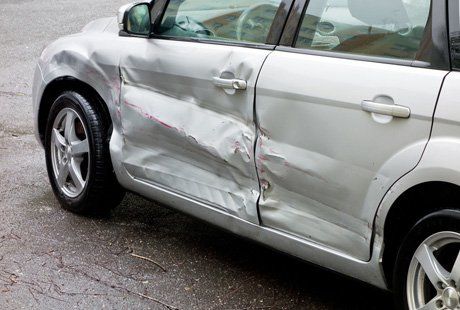What is a Statute of Limitations and how can it impact my personal injury case?
- By 7016273264
- •
- 04 May, 2023
- •
What is a Statute of Limitations and how can it impact my personal injury case?
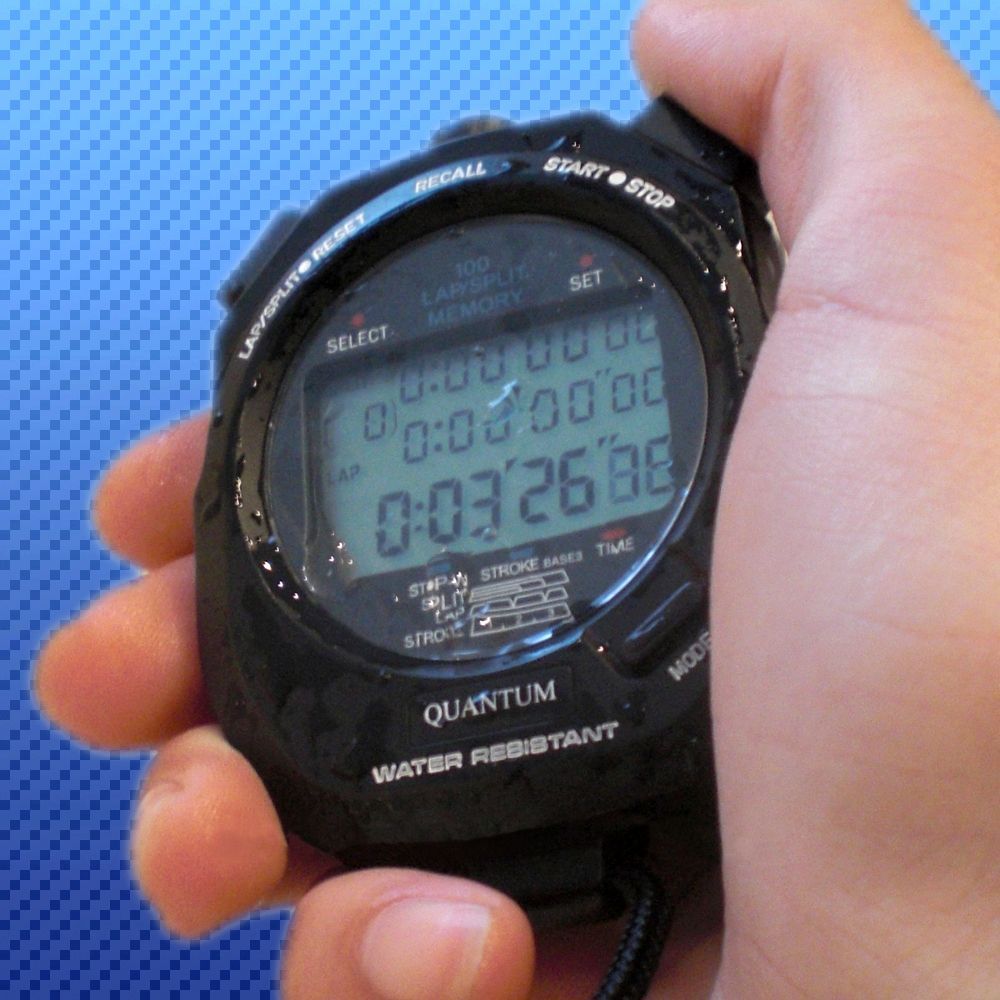
In West Virginia, the statute of limitations for personal injury claims is generally two years from the date of the injury or accident. This means that a person must file a lawsuit within two years of the incident, or they will be barred from pursuing legal action. However, there are some exceptions to this rule, such as cases involving nursing home abuse, which have a one-year statute of limitations.
In Kentucky, the statute of limitations for personal injury claims is also generally one year from the date of the injury or accident. An important exception to this rule is that the statute of limitations for car wrecks and other accidents is two years. Additionally, there is a one-year statute of limitations for claims against government entities.
In Ohio, the statute of limitations for personal injury claims is generally two years from the date of the injury or accident. However, there are some exceptions to this rule, such as cases involving medical malpractice, which have a one-year statute of limitations. Additionally, there is generally a two-year statute of limitations for claims against government entities.
It is important to note that the statute of limitations can vary depending on the type of claim and the state in which the claim is being made. It is always best to consult with an attorney or legal professional to determine the specific statute of limitations that applies to your case. If you have been injured due to someone else's reckless and negligence call Stapleton Law today at (304)529-1130 for a free appointment to discuss your case.
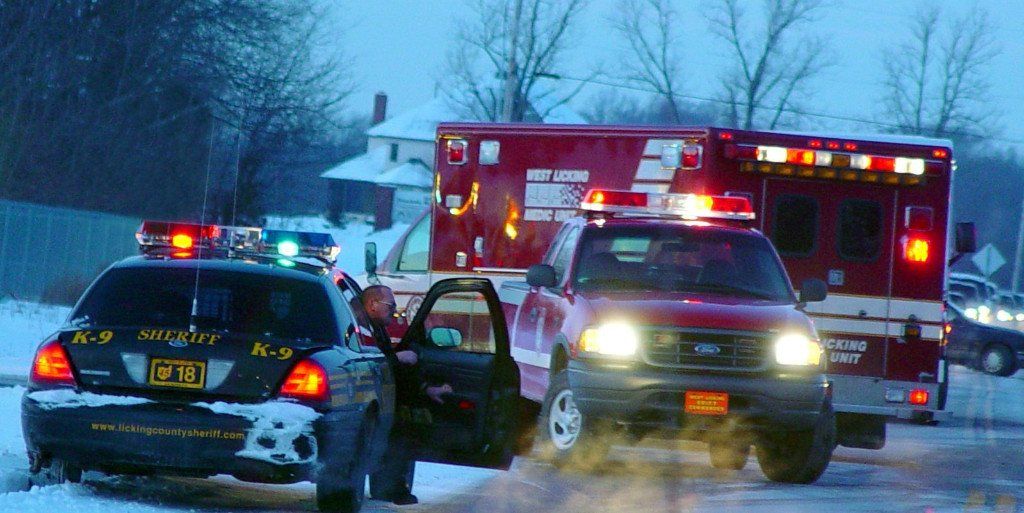
An auto accident can be a stressful and overwhelming experience. In the moments following a crash, it’s important to stay calm and take the right steps to protect your health, safety, and legal rights. At Stapleton Law, we’ve helped countless accident victims get the compensation they deserve. Here’s what you should do after an accident to safeguard your well-being and strengthen your personal injury claim.
1. Check for Injuries and Call 911
Your health and safety are the top priorities. If you or anyone else is injured, call 911 immediately. Even if injuries seem minor, adrenaline can mask pain, and some injuries (like concussions or internal bleeding) may not show symptoms right away. Always seek medical attention as soon as possible.
2. Move to a Safe Location (If Possible)
If your vehicle is blocking traffic and it’s safe to move, pull over to the side of the road. Turn on your hazard lights to alert other drivers. However, if the crash is severe or if moving the vehicle could cause further harm, stay put and wait for emergency responders.
3. Call the Police and File a Report
Even in minor accidents, having a police report can be crucial for your insurance claim and any potential legal case. When the police arrive, provide factual information but avoid admitting fault. Let the authorities determine what happened based on the evidence.
4. Gather Evidence at the Scene
If you’re physically able, collect as much information as possible. This includes:
Photos of the vehicles, damages, skid marks, road conditions, and any visible injuries.
Names and contact info of other drivers, passengers, and witnesses.
Insurance and vehicle details of the other driver(s).
Police report number and the officer’s name.
This evidence can be vital in proving liability and maximizing your compensation.
5. Seek Medical Attention ASAP
Even if you feel fine, some injuries (like whiplash or internal injuries) can take hours or days to appear. Seeing a doctor immediately ensures that injuries are properly diagnosed and documented, which can be crucial for your personal injury case.
6. Notify Your Insurance Company
Report the accident to your insurance company as soon as possible, but be cautious about what you say. Stick to the facts and avoid admitting fault. If the other driver’s insurance company contacts you, do not provide a recorded statement or accept any settlement without speaking to an attorney first.
7. Contact an Experienced Personal Injury Attorney
Insurance companies often try to minimize payouts or deny claims altogether. At Stapleton Law, we fight for the compensation you deserve for decades, including medical expenses, lost wages, pain and suffering, and more. The sooner you have legal representation, the better we can protect your rights.
8. Follow Your Doctor’s Orders & Keep Records
Adhering to your doctor’s treatment plan is crucial for your recovery and your claim. Keep detailed records of:
Medical visits, treatments, and prescriptions;
Lost wages due to the accident; and
Any pain, discomfort, or emotional distress you experience.
These records help prove the impact the accident has had on your life.
Why Choose Stapleton Law?
At Stapleton Law, we understand the challenges accident victims face. Our experienced personal injury attorneys have a track record of success in securing maximum compensation for our clients. We handle the legal complexities so you can focus on healing.
If you’ve been injured in an auto accident, don’t go it alone. Contact Stapleton Law today for a free consultation. We’re here to fight for you.
Call us at (304)529-1130
Email us at Contact@Stapleton-Law.com
Visit our website: www.Stapleton-Law.com
Taking the right steps after an accident can make all the difference in your recovery and legal claim. Trust the experienced team at Stapleton Law to guide you through the process and fight for the justice you deserve.
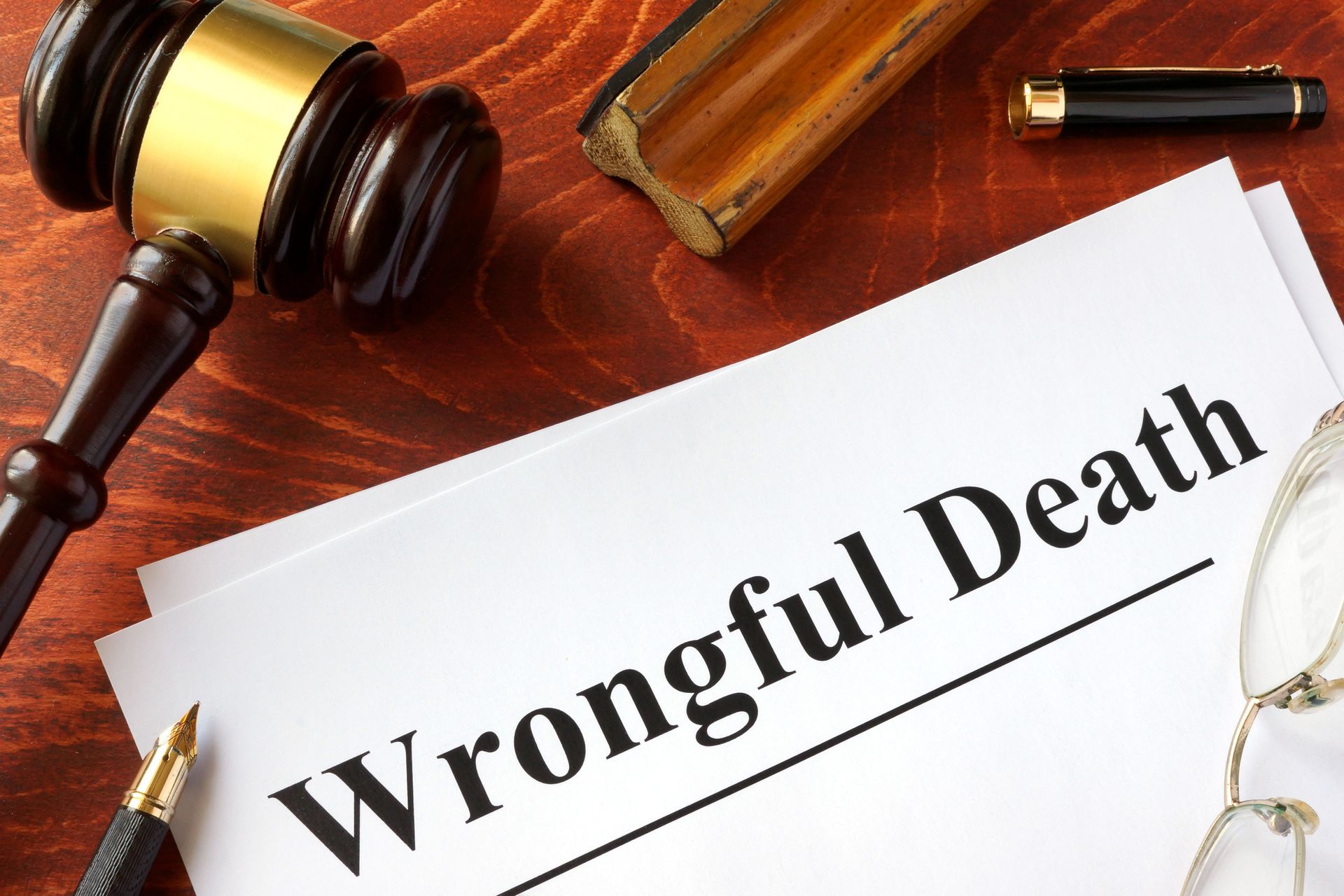

1. **Prioritize Safety**: The first and most important step is to ensure everyone's safety. If possible, move your vehicle to a safe location to avoid further accidents. Check for injuries and call for medical assistance if needed.
2. **Contact the Authorities**: Regardless of the accident's severity, it's essential to call the police. A police report will provide an official record of the accident, which can be crucial for insurance and legal purposes.
3. **Exchange Information**: Exchange contact and insurance information with the other driver involved in the accident. Be sure to gather details from any witnesses as well, as their statements may be valuable in the future.
4. **Document the Scene**: Take photographs of the accident scene, including the vehicles involved, any visible injuries, and the surrounding area. These visual records can serve as crucial evidence later on.
5. **Seek Medical Attention**: Even if you don't believe you've been seriously injured, it's important to seek medical attention. Some injuries may not manifest immediately, so getting a thorough medical evaluation is crucial for your health and for any potential legal case.
6. **Notify Your Insurance Company**: Contact your insurance company to report the accident. Provide accurate and honest details, but refrain from admitting fault or making speculative statements about the accident.
7. **Consult with an Attorney**: Consider reaching out to a personal injury attorney with experience in auto accidents. An attorney can provide valuable guidance on your legal options and ensure your rights are protected throughout the process. At Stapleton Law we offer free no obligation consultations with a personal injury attorney to discuss your situation and options.
8. **Keep Records**: Maintain a detailed record of all communication related to the accident, including medical reports, repair estimates, and correspondence with insurance companies. These records can be invaluable in building a strong case.
9. **Avoid Discussing the Accident Publicly**: Refrain from discussing the accident on social media or with anyone other than your attorney or the authorities. Comments made publicly can potentially be used against you in legal proceedings.
10. **Be Wary of Quick Settlement Offers**: If the other party's insurance company offers you a quick settlement, be cautious. Consult with your attorney before accepting any offers, as they may not adequately cover the full extent of your damages.
11. **Follow Through with Treatment and Legal Guidance**: Adhere to the treatment plan outlined by your healthcare providers, and stay in close communication with your attorney. Your attorney will guide you through the legal process and advocate for your best interests.
Navigating the aftermath of an auto accident can be challenging, but by following these steps, you can protect yourself and your legal rights. If you've been in an auto accident and are seeking guidance, don't hesitate to reach out to our experienced personal injury attorneys. At Stapleton Law, we're here to help you through this difficult time and ensure you receive the compensation you deserve.

As the winter season arrives, the scenic snowfall and icy landscapes bring about a stunning transformation. However, for drivers, it also signals the onset of hazardous road conditions. Snow and ice can significantly increase the risk of accidents and injuries on the road, making it crucial for everyone to understand how to navigate these challenges safely.
At [Law Firm Name], we are dedicated to ensuring the safety and well-being of individuals, especially during precarious driving conditions. With our expertise in personal injury law, we have witnessed the devastating consequences of winter-related accidents. To help you stay safe, here are essential tips for driving in snow and ice.
1. Prepare Your Vehicle:
Before hitting the road, ensure that your vehicle is winter-ready. This includes checking tire tread and pressure, ensuring proper fluid levels, and inspecting the brakes and battery. A well-prepared vehicle is the first line of defense against winter driving hazards.
2. Slow Down:
Reducing speed is crucial when driving in snow and ice. It allows for better traction and provides more time to react to unexpected situations. Accelerate and decelerate gradually to avoid skidding, and maintain a safe following distance from other vehicles.
3. Practice Gentle Maneuvers:
Abrupt movements can lead to loss of control on slippery roads. Make gentle steering adjustments and avoid sudden braking to minimize the risk of skidding. If your vehicle starts to slide, gently steer into the direction of the skid to help regain control.
4. Stay Informed:
Keep an eye on weather forecasts and road conditions before embarking on a journey. If possible, delay travel when conditions are particularly treacherous. Staying informed about potential hazards can help you make safer decisions.
5. Use Proper Lighting:
Visibility is often reduced during snowfall, so ensure that your headlights, taillights, and turn signals are all functioning properly. Use low-beam headlights to improve visibility and make your vehicle more conspicuous to others on the road.
6. Clear Snow and Ice:
Before driving, take the time to clear all snow and ice from your vehicle. This includes the windshield, windows, lights, and the roof. Snow blowing from your vehicle can obstruct your vision or that of other drivers, posing a serious danger.
7. Be Cautious on Bridges and Overpasses:
These structures tend to freeze first and thaw last, making them particularly hazardous in cold weather. Approach them with extra caution and avoid sudden movements while crossing.
8. Know When to Stop:
If conditions deteriorate to the point where driving becomes unsafe, find a safe place to pull over and wait for conditions to improve. It's better to arrive late than to risk an accident due to dangerous driving conditions.
While these tips can help mitigate the risks of winter driving, accidents can still occur despite taking every precaution. If you find yourself injured in a winter-related car accident due to someone else's negligence, it's essential to seek legal guidance promptly.
At [Law Firm Name], we are committed to providing expert legal representation for personal injury cases. Our experienced team understands the complexities of such situations and will work tirelessly to ensure that you receive the compensation you deserve.
By following these driving tips and knowing your rights in the event of an accident, you can navigate winter roads with confidence and stay safe during the chilly months ahead. At [Law Firm Name], your safety is our priority, and we are here to support you every step of the way.
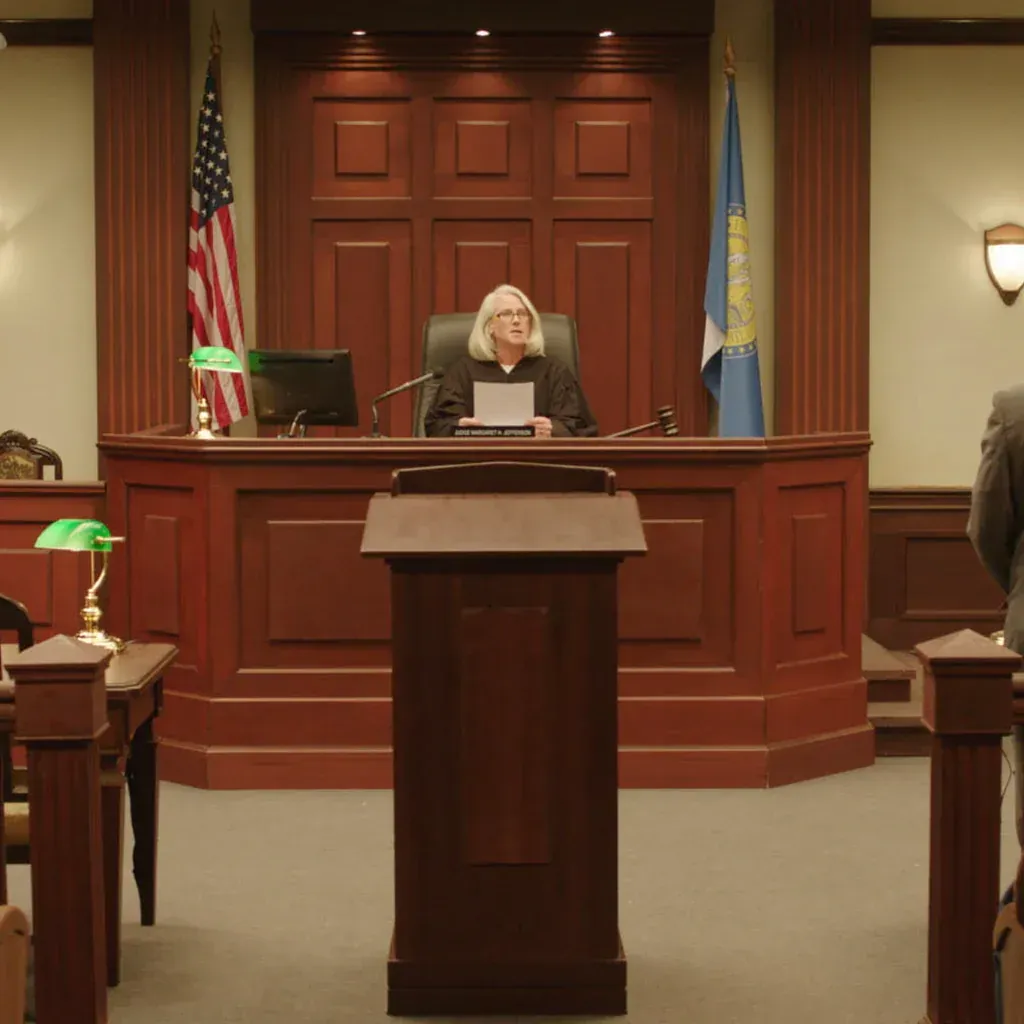
A car wreck is not just about the immediate damage. The consequences can have long-lasting effects on your health, employment, and financial well-being. This is where a personal injury attorney becomes indispensable. They bring to the table specialized knowledge of the law, negotiation skills, and the ability to navigate the complex claims process.
First and foremost, an attorney understands the legal framework surrounding car accidents. They are well-versed in state laws that govern fault, insurance coverage, and statutes of limitations. This expertise is vital in ensuring that you file your claims on time and that all legal procedures are correctly followed to safeguard your rights.
Moreover, determining liability in a car wreck can be complex. It often involves piecing together evidence, understanding the nuances of traffic laws, and sometimes reconstructing the accident scene. Personal injury attorneys have experience in these areas and access to professional investigators and accident reconstructionists. They will work tirelessly to build a strong case on your behalf.
When it comes to dealing with insurance companies, having an attorney is invaluable. Insurance adjusters are skilled at negotiating settlements and may offer you a quick payout that is far less than what you deserve. An attorney is equipped to negotiate with these companies and will fight for a fair settlement that covers all your expenses, including medical bills, lost wages, and pain and suffering.
Furthermore, attorneys understand the real value of your claim. They can accurately calculate not only the current costs associated with the wreck but also future expenses such as ongoing medical care, rehabilitation, and any necessary modifications to your home or vehicle. Without this insight, you might accept a settlement that falls short of your future needs.
In the event that an acceptable settlement cannot be reached, a personal injury attorney is prepared to take your case to court. While the idea of going to trial can be daunting, sometimes it is necessary to secure the compensation you deserve. An experienced attorney will handle all aspects of the trial, from selecting jurors to presenting evidence, allowing you to focus on your recovery.
In addition to these practical aspects, there is an emotional benefit to hiring an attorney. Dealing with the aftermath of a car wreck can be stressful. An attorney can take on the burden of legal and administrative tasks, giving you the peace of mind to concentrate on healing.
In conclusion, the role of a personal injury attorney following a car wreck cannot be overstated. They provide legal expertise, negotiate with insurance companies, accurately assess the value of your claim, and can take your case to trial if necessary. Perhaps most importantly, they offer peace of mind during one of the most challenging times in your life. If you find yourself in the unfortunate position of being in a car wreck, securing a personal injury attorney should be one of your first actions after attending to your immediate medical needs.

Factors Affecting the Duration: Several key factors influence the length of a personal injury lawsuit. While some cases may resolve quickly, others may take months or even years. Here are a few essential factors to consider:
1. Case Complexity: The complexity of your case significantly impacts the timeline. Cases involving intricate legal issues or multiple parties may take longer to resolve.
2. Severity of Injuries: The severity of your injuries affects the duration as well. Extensive injuries often require comprehensive medical evaluations, consultations, and ongoing treatment, which can prolong the process.
3. Insurance Company Cooperation: The willingness of the insurance company to cooperate and negotiate can also influence the timeline. If they are uncooperative or deny liability, the case may proceed to trial, extending the overall duration.
4. Availability of Evidence: Gathering evidence to support your claim is crucial. This includes medical records, accident reports, witness statements, and expert opinions. The time required to collect and analyze evidence can impact the timeline.
Stages of a Personal Injury Lawsuit: While every case is unique, personal injury lawsuits generally follow a similar progression. Understanding the stages can provide insight into the anticipated timeline:
1. Consultation and Investigation: Initially, you'll consult with a personal injury attorney at Stapleton Law who will assess the viability of your case. If you decide to proceed, an investigation will be conducted to gather evidence and evaluate your claim's strength.
2. Filing the Complaint: Your Stapleton Law attorney will draft and file a complaint, outlining your allegations against the responsible party. This begins the formal lawsuit process.
3. Discovery: The discovery phase involves exchanging information between both parties. This mostly includes written questions (interrogatories), document requests, and depositions. Discovery can be time-consuming, depending on the complexity of the case.
4. Negotiation and Settlement: Many personal injury cases are resolved through negotiation and settlement discussions. Stapleton Law will engage in negotiations with the opposing party or their insurance company to seek a fair settlement. Most Courts also require the parties to participate in mediation to attempt to settle a case.
5. Trial: If a settlement cannot be reached, the case may proceed to trial. This stage involves presenting evidence, witness testimonies, and arguments to a judge or jury. Trials can be lengthy, and the timeline can vary. Some trials last one day while others can last months depending on the complexity.
Conclusion: While it's challenging to provide an exact timeframe for a personal injury lawsuit, understanding the factors involved and the stages of the process can give you a general idea of what to expect. Remember, each case is unique, and it's crucial to work closely with an experienced personal injury attorney like the Attorneys at Stapleton Law who can guide you through the legal journey.

1. Strength of Evidence: One of the most crucial factors in determining whether a case will go to trial or be settled is the strength of the evidence. If the evidence is compelling and favors the plaintiff, it may increase the likelihood of a favorable trial outcome, leading to the decision to proceed to trial. On the other hand, if the evidence is weak or inconclusive, settling the case may be a more prudent choice.
2. Potential Damages: The potential damages involved in a personal injury case can also influence the decision to settle or go to trial. Sometimes, the defendant may be willing to settle if the potential damages are significant, rather than risk facing higher liability at trial. Conversely, if the defendant believes the potential damages are minimal or if liability is disputed, they may be more inclined to take the case to trial.
3. Cost and Time Considerations: The cost and time involved in taking a case to trial can be substantial. Litigation expenses, including expert witness fees, court costs, and attorney fees, can quickly add up during the trial process. Additionally, trials can be lengthy, potentially dragging on for months or even years. For plaintiffs seeking timely compensation or defendants looking to contain costs, settling the case may be a more attractive option.
Benefits of Settlement:
1. Certainty and Control: Settlements offer certainty to both parties involved. By reaching an agreement, plaintiffs can secure financial compensation without the uncertainty of a trial outcome. Defendants, on the other hand, can avoid the potential risk of a large jury verdict. Settlements also provide the opportunity for both parties to have more control over the terms and conditions of the agreement.
2. Timely Resolution: Trials can be time-consuming, often taking years to reach a final verdict. Settling a case allows for a quicker resolution, enabling plaintiffs to receive compensation promptly and move on with their lives. Defendants can also avoid the need for ongoing litigation and focus on other matters. Importance of
Trial:
1. Principle and Justice: In some cases, the injured party may prioritize the principle of justice over a settlement offer. They may wish to have their day in court and hold the responsible party accountable for their actions. Trials can also set legal precedents and help shape the development of personal injury law.
2. Potentially Higher Compensation: While settlements provide certainty, trials offer the potential for higher compensation. Juries may award substantial damages, including punitive damages, if they find the defendant's actions particularly egregious. For plaintiffs with severe injuries or significant financial losses, a trial may be the best path to securing the compensation they deserve.
In conclusion, the decision whether to settle a personal injury case or proceed to trial is a complex one, influenced by several factors. While settlements offer certainty, control, and timely resolution, trials can provide a sense of justice and potentially higher compensation. Ultimately, the choice will depend on the unique circumstances of each case and the assessment of the involved parties and their legal representatives. By carefully weighing the strengths, weaknesses, and potential outcomes, both plaintiffs and defendants can make informed decisions that best serve their interests.
If you or a loved on have been injured due to someone else's negligence and are not sure what to do, call (304)529-1130 for the legal team at Stapleton Law to set up a free no obligation appointment to discuss your options and rights.

1. Understanding Liability in Dog Bite Cases:
In dog bite cases, determining liability is essential. Laws regarding dog bites vary from state to state, but many jurisdictions impose strict liability on dog owners. This means that the owner can be held responsible for their dog's actions, regardless of whether they knew about the dog's aggressive tendencies. A skilled personal injury law firm specializing in dog bite cases will thoroughly investigate the incident, gather evidence, and establish liability on behalf of the victim.
2. Seeking Medical Care and Documenting Injuries:
After a dog bite, seeking immediate medical attention is crucial for both your well-being and your legal case. Professional medical care ensures that your injuries are properly treated and documented, which can significantly strengthen your claim. At Stapleton Law we will work closely with healthcare professionals to gather comprehensive medical records and expert opinions, establishing the extent of your injuries and the associated medical costs. This evidence is vital in negotiating a fair settlement or presenting a compelling case in court.
3. Evaluating Damages and Compensation:
Dog bite injuries can result in various damages, including medical expenses, lost wages, pain and suffering, emotional distress, and even permanent scarring or disfigurement. At Stapleton Law we will accurately assess the full extent of your damages, both economic and non-economic, ensuring that no losses are overlooked. We will fight tirelessly to secure the compensation you deserve, covering medical bills, ongoing treatment, lost income, and providing for any future needs resulting from the incident.
4. Negotiating with Insurance Companies:
Dealing with insurance companies can be overwhelming, as they often aim to minimize payouts. Having a personal injury attorney by your side is crucial during negotiations. Stapleton Law will handle all communication with the insurance company, protecting your interests and ensuring that your rights are not compromised. With our expertise in negotiating settlements, our attorneys will strive to achieve a fair and just resolution, relieving you of the stress and frustration often associated with insurance claims.
5. Litigation: Taking Your Case to Court:
In some instances, reaching a settlement may not be possible. If negotiations fail to deliver a satisfactory outcome, Stapleton Law will prepare your case for trial. We will gather additional evidence, consult expert witnesses, and build a strong courtroom strategy to present your case effectively. Throughout the litigation process, your attorneys will be your advocate, fighting for your rights and pursuing the compensation you deserve from the responsible party.
Conclusion:
When faced with the physical, emotional, and financial toll of a dog bite, partnering with a reputable personal injury law firm is essential. Stapleton Law’s expertise will guide you through the intricate legal process, ensuring that your rights are protected and that you receive the compensation you deserve. By enlisting the help of Stapleton Law, you can focus on your recovery while they fight for justice on your behalf. Remember, you don't have to face the aftermath of a dog bite alone.
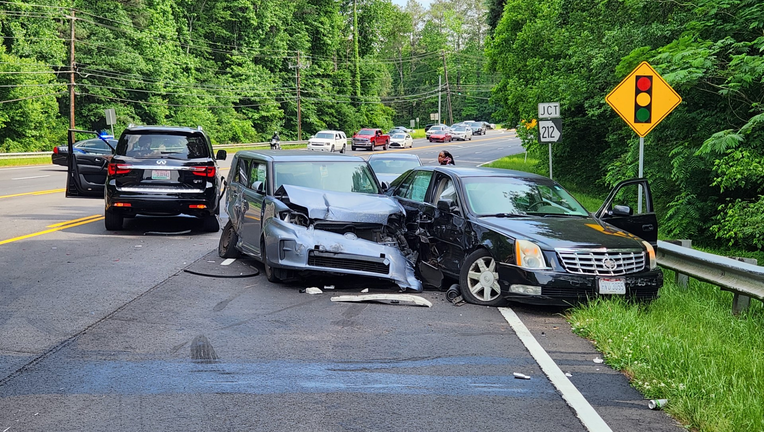
Medical Expenses
One of the most important factors in determining the value of a car wreck case is the amount of medical expenses that have been incurred as a result of the accident. This includes things like hospital bills, doctor’s fees, and the cost of any necessary medical treatment. If you have suffered a serious injury, these expenses can quickly add up.
Lost Wages
Another factor that is considered when determining the value of a car wreck case is lost wages. If you have had to miss work as a result of your injuries, you may be able to recover the wages that you would have earned if you hadn’t been injured. This includes both past and future lost wages.
Pain and Suffering
Pain and suffering is another factor that is considered when determining the value of a car wreck case. This includes physical pain, emotional distress, and mental anguish that you have suffered as a result of the accident. This can be difficult to quantify, but it is an important factor that is considered when determining the value of your case.
Property Damage
If your car was damaged in the accident, you may be able to recover the cost of repairing or replacing your vehicle. This includes both the cost of the repairs and the value of your vehicle if it was totaled in the accident.
Liability
Another important factor that is considered when determining the value of a car wreck case is liability. Liability refers to who was at fault for the accident. If the other driver was clearly at fault, you may be able to recover more money than if you were partially at fault for the accident.
Evidence
The amount of evidence that you have to support your case is also an important factor that is considered when determining the value of your case. This includes things like witness statements, police reports, and any video or photo evidence that you may have.
Negotiation
Finally, negotiation is an important factor that can impact the value of your case. If you have an attorney that is experienced in negotiating with insurance companies for car wrecks you will likely get more money than if you try to negotiate the claim yourself.
